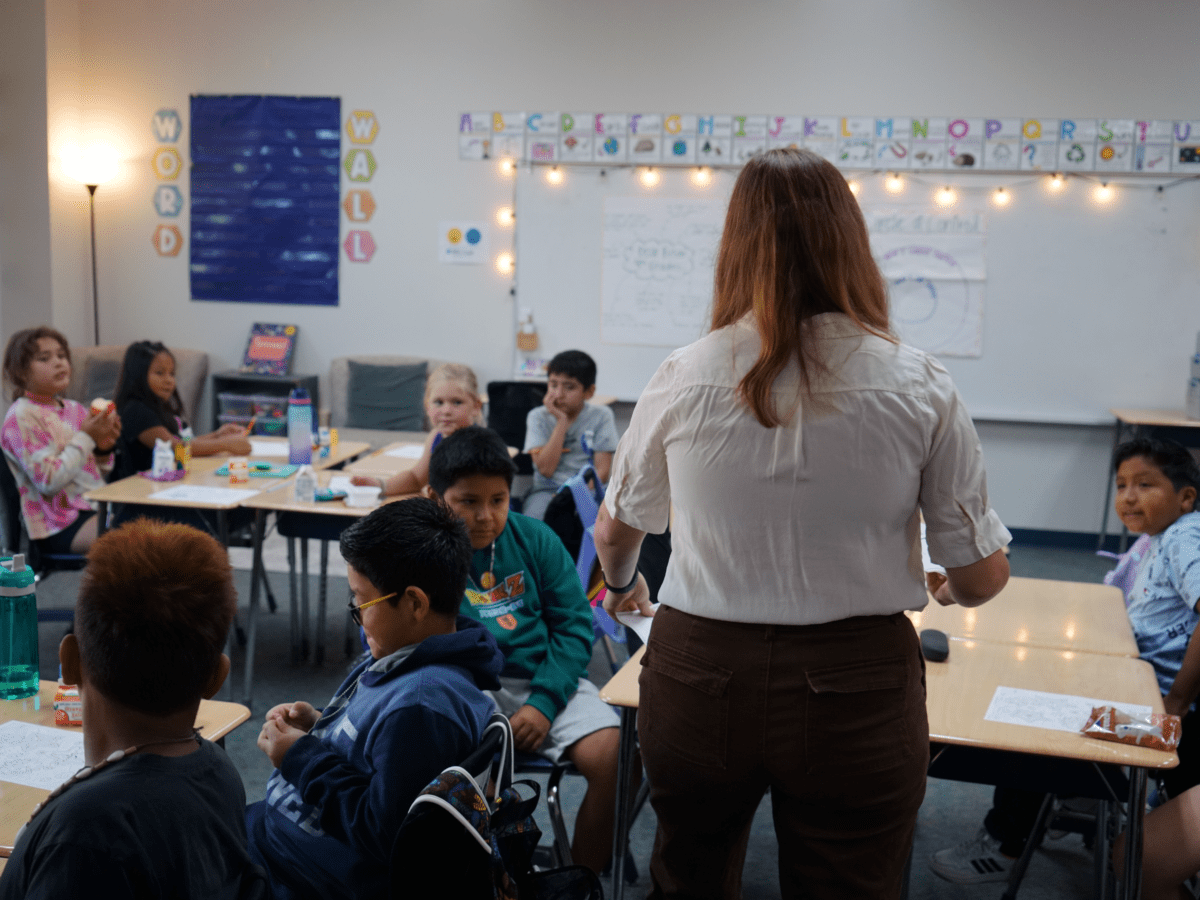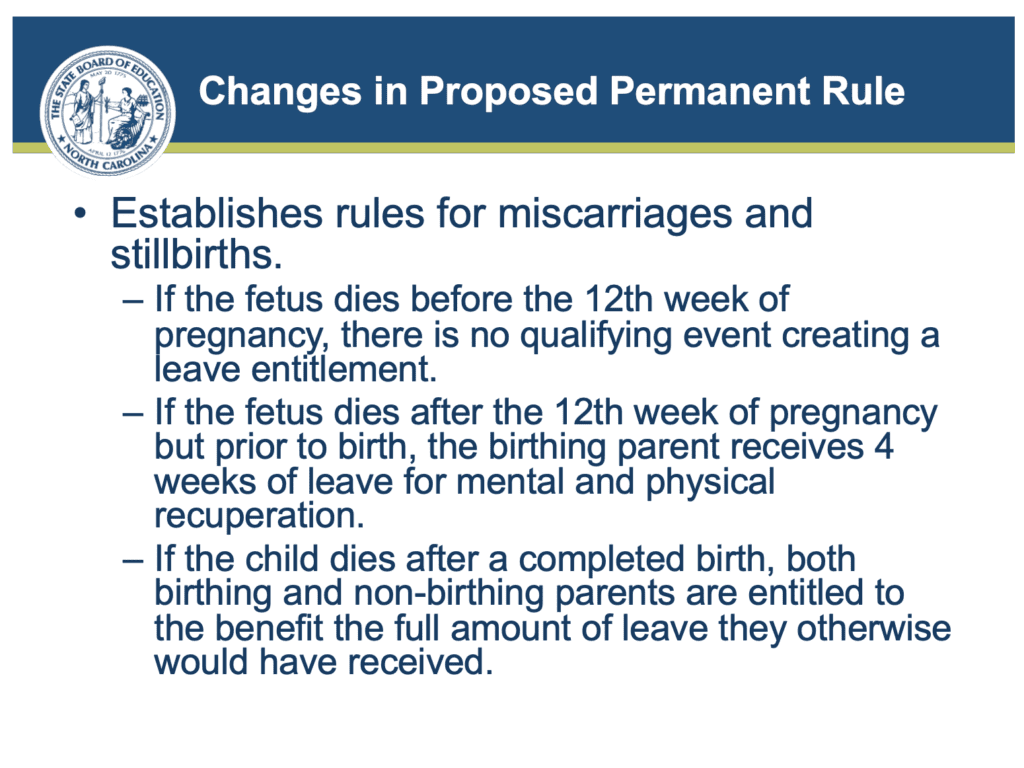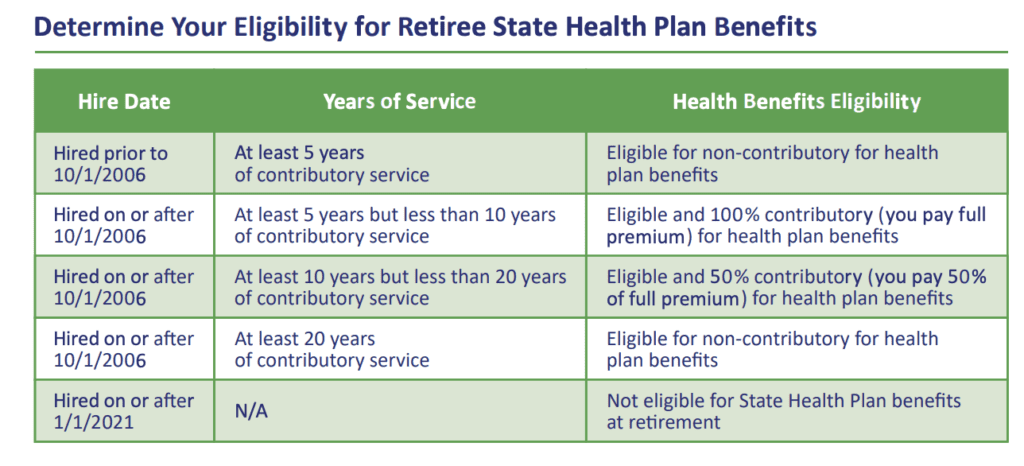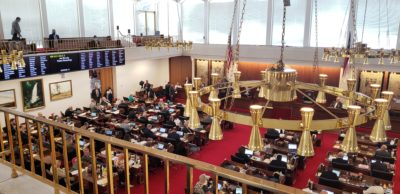
|
|
In North Carolina, there were 90,638 teachers employed in public schools during the 2022-23 school year, according to recent data from the Department of Public Instruction (DPI).
During the State Board of Education’s biannual planning and work session on April 30-May 2 in Boone, Board members and DPI staff spoke at length about how to retain those teachers, as well as how to recruit others.
Specifically, the group talked about the goal of having “a highly effective teacher in every classroom,” which was laid out in the Leandro Comprehensive Remedial Plan.
“It’s hard to argue with the necessity of that,” said Rupen Fofaria, former EdNC reporter who now serves as the director of Board operations and policy. “We have so many amazing teachers, and the idea of a highly effective teacher in every classroom is realistic. …We know there’s work to be done and we don’t turn a blind eye to that, but I also see on visit after visit, educators showing up to work every day, giving their all for the students in their classrooms.”
According to DPI’s annual state of the teaching profession report, 11.5% of teachers left their role last school year. That is an increase from 7.8% of teachers who left teaching the year before.
At the same time, approximately 91% of respondents of the updated 2024 Teachers Working Conditions Survey strongly agreed or agreed that “overall, my school is a good place to work and learn.”
Roughly eight out of 10 respondents said they plan to continue teaching at their current school next year. Many respondents did ask for more differentiated professional development and “sufficient time to do their job.”
The survey, which was open from March 1 to April 5, was sent to 119,500 educators and answered by 102,082. DPI released preliminary findings from the survey on April 30, with plans to release a more detailed report in October.
“If teachers take the time to give us input to fill out a survey, we absolutely have to use the data to make better decisions about what’s going on in our schools,” DPI’s Dr. Jeni Corn told the Board at its April 30 meeting.
The Board discussed several benefits and supports for teachers in North Carolina, including parental leave, beginning teacher support, and supplemental funds. Below, you can find a look at the items discussed, and where teachers can find more information for each topic.
Parental leave policy
Last fall, the Board approved temporary administrative rules regarding the paid parental leave mandated by Senate Bill 20. That section requires a paid parental leave policy for all state agency, public school, UNC, and community college employees.
The General Assembly appropriated $10 million in recurring funds to DPI to fund substitute teachers during paid parental leaves. The law applies to requests for paid parental leave for qualifying events occurring on or after July 1, 2023.
Under the law, charter schools can choose whether or not to provide paid parental leave. Charter schools must opt in by Oct. 1 each year to receive reimbursement, DPI said.
Last week, the Board proposed a permanent rule on parental leave, including some changes. The permanent rule is expected to take effect on Oct. 1, 2024, following a period of public comment and a final vote from the Board in August.
The temporary policy allots up to eight weeks of parental leave for the parent who gives birth. It grants up to four weeks for other parents, including foster and adoptive parents, and legal guardians.
The permanent rule would divide the eight weeks of available leave to “birthing parents” as follows:
- Four weeks for mental and physical recuperation.
- Four weeks for bonding with the child.
The permanent rule would also limit parental leave when a child is placed up for adoption or into foster care to four weeks for birthing parents.
The updated rule would establish rules for miscarriages and stillbirths, listed in the screenshot below.

Under both rules, part-time, permanent employees have the same option on a pro-rata basis, up to eights weeks for a parent who gives birth and up to four weeks for any other qualifying event.
You can read the proposed permanent rule here.
State law says that school employees can use annual leave, personal leave, or leave without pay in addition to the new paid parental leave.
Here are few other important parts of the Board’s policy:
- Eligible employees include those hired to fill a permanent, probationary, or time-limited position. The leave will not extend to temporary employees or independent contractors.
- To be eligible, employees must have been employed by the public school unit without a break in service “for at least 1,040 hours within the previous 12-month period.” According to the rule, “the employee may aggregate periods of employment with different employers to satisfy this requirement,” with the exception of non-participating charter schools.
- Leave is available only one time during the same 12-month period for an individual employee.
- Both parents must be allowed to take the leave at the same time even if they work for the same employer.
Support for beginning teachers
The attrition rate for beginning teachers last school year was higher than the overall rate, according to DPI’s report, at roughly 15%. Beginning teachers are defined as teachers in their first three years on the job.
Among beginning teachers, turnover was highest for teachers with less than one year of experience, at 26.5%
“These trends highlight the importance of providing enhanced support for early-career educators, including those who enter the profession through the residency license pipeline,” said State Superintendent Catherine Truitt.
At the Board’s April 3 meeting, members said the state should increase starting pay for beginning teachers and support for college students pursuing teaching degrees. The 2023 state budget did give larger raises to beginning teachers, increasing base pay from $37,000 to $41,000 over the biennium.
Members also mentioned the need to strengthen policies like mentor support and manageable workloads for beginning teachers.
Last Wednesday, the Board heard a presentation from UNC Charlotte’s Cato College of Education: “Impacts of the North Carolina New Teacher Support Program on Beginning Teacher Retention.”
The North Carolina New Teacher Support Program (NTSP) is a statewide initiative of the University of North Carolina General Administration. The program, which partners with 10 public universities, focuses on personalized professional development, feedback, resources, and confidence-boosting among new teachers.
Since the program was founded in 2014, the program has supported 9,300 teachers across 750 schools.

Presenters Dr. Anne Cash and Dr. Kyle Cox said research shows that the program successfully reduces beginning teacher attrition. Their research suggests the NTSP is particularly beneficial for Black teachers and teachers in urban and suburban schools.
However, “its statewide infrastructure currently serves less than 10% of NC’s Beginning Teachers each year,” their presentation said.
According to the NTSP’s website, teachers are selected by partners to enroll in the program. At that point, beginning teachers can access professional development and instructional coaching through the program.
Each teacher is paired with an experienced, flexible coach, Cash and Cox said. However, coaches have high caseloads (1:30), the presentation said, and “limited time for planning or professional development, as necessitated by current funding mechanisms.”
The presentation made three recommendations:
- Increase recurring state-appropriated funds to support NC NTSP long-term sustainability and impact.
- Further engage NC NTSP as a partner to study and develop innovative solutions to the challenges experienced by beginning teachers.
- Support ongoing research on coaching practices that bolster retention and effectiveness across the pipeline.
DPI also has a “systematic structure of support for beginning teachers,” which encourages, among other things, an institutional plan of support, mentor support, professional development, and formative assessments.
However, according to DPI’s website, these supports are “understood and implemented at the local level.”
Last week, DPI’s Northwest Regional Director Stephanie Dischiavi gave the Board a presentation on the Beginning Teachers Support Program (BTSP).
“One primary and direct goal of the BTSP is to help new teachers improve skills and build confidence to become successful educators,” her presentation said. “BTs will only reach their fullest potential with systems of support from the state, school district, local school and quality mentors.”
You can find your regional facilitator’s contact information on DPI’s website.
Dischiavi’s presentation highlighted a few examples of districts implementing BTSP goals well.
- Caldwell County Schools offers a beginning teacher support program that includes a multi-day orientation for all beginning teachers, along with a mentor, observations, professional development, and “optimum working conditions.”
- Catawba County Schools also offers a support program for beginning teachers, which includes summer workshops (differentiated based on a teacher’s pathway), monthly seminars, and structured mentored support.
- Wilkes County Schools‘ plan includes beginning teacher orientation, mentor identification, buddy teacher assignments, professional development, and beginning teacher support services.
“Wilkes County Schools strives to help beginning teachers improve their skills and build confidence to become successful educators,” the district’s website says.
Finally, the Board also heard a presentation on TeachNC.org, “a centralized hub for prospective teachers to explore the profession and get free support on their journey to the classroom.”
Teach NC provides how-to guides, application checklists, fee reimbursements, and scholarships to future and new teachers. Since 2019, Teach NC has supported 5,985 future teachers, according to the presentation.
Advanced teachers, supplemental funds, bonuses
In North Carolina, teachers are paid according to a base monthly salary schedule that increases based on years of experience. You can view the updated salary schedules for 2023-24 on DPI’s website.
There are a number of supplements that can go on top of that base amount. Here is a list of state-funded supplements to the base salary schedule.
- Graduate degrees required for licensure. North Carolina no longer automatically pays teachers extra for having a master’s degree, unless the position requires that degree.
- National Board certification. Teachers with National Board certification receive a 12% salary supplement.
- Higher schedule placement plus an additional $350/month for school psychologists, speech pathologists, and audiologists.
- School counselors receive an additional $100/month.
- Bonuses for certain test scores or EVAAS growth scores.
- Advanced Teaching Roles.
- Working in smaller or lower-wealth counties.
You can read more about these bonuses and supplements here.
The Board’s discussions last week focused on the Advanced Teaching Roles (ATR) program and supplemental funds for small and low-wealth counties. The Board also discussed its report to the General Assembly on supplemental funds teachers receive from their district. These supplements vary widely across the state.
Advanced teaching roles
The ATR Supplement was established last year.
That new supplement programs award $10,000 per year to teachers designated as “Adult Leadership Teachers” in their district. A participating district can name up to 15% of its teachers as these leaders.
The ATR program also awards $3,000 annually for teachers designated as “Classroom Excellence Teachers,” which can make up 5% of teachers in each participating district.
According to DPI’s presentation, the purpose of the program is “to develop advanced teaching roles and organizational models that link teacher performance and professional growth to salary increases for classroom teachers in selected school administrative units.”
You can view approved school districts on DPI’s website. You can read Best NC’s 2022 policy brief on the program here.
Supplemental teacher funds
The teacher supplement assistance allotment was first established in 2021, and provides assistance for districts in providing a salary supplement to its teachers. Assistance is awarded based on a county’s tax base threshold.
In 2021-22, the statewide average local supplement was $5,123 and supplements ranged from $8,678 in Charlotte-Mecklenburg Schools and $8,670 in Wake County Public Schools to $0 in four school districts: Caswell County Schools, Clay County Schools, Graham County Schools, and Swain County Schools.
Excerpt from EdNC’s March 2023 coverage of a BEST NC report
The teacher supplement assistance allotment’s stated goal is to help smaller counties be more competitive when it comes to teacher hiring. State funds are meant to increase the supplement offered to teachers. In other words, counties should not decrease their supplement contribution after receiving state funds.
In FY 2023-24, the state allocated $200 million to this fund.
Currently, four school districts are not eligible for the assistance based on the tax base threshold: Wake County Public Schools, Durham Public Schools, Guilford County Schools, and Charlotte-Mecklenburg Schools.
The 2023 report to the General Assembly on the program also identified Buncombe County and Asheville City schools as being ineligible.
You can view the most recent report here. The report shows the average supplement per district, along with the percentage of teachers receiving the supplement.
In FY 2023-24, the budget allocated $4.3 million for low-wealth and small county teaching bonuses. This program was established in 2021.
This bonus — which varies across the state — gives a signing bonus for teachers in eligible counties.
The state allocates up to $1,000 per teacher and requires a 1:1 local match in funding. This means teachers can receive up to a $2,000 signing bonus.
Retirement benefits
The Teachers’ and State Employees’ Retirement System (TSERS) is a pension plan administered by the North Carolina Total Retirement Plans within the Department of State Treasurer (DST).
There are 302,293 active members in the system, and 246,374 retired members receive monthly benefits.
Membership in TSERS is automatic for eligible employees, which includes permanent full-time teachers, employees of a state-supported board of education or community college, and permanent employees of participating charter schools (and you work at least 30 hours per week for nine months per year).
You become vested in TSERS once you have completed a minimum of five years of membership service. This means that you are eligible to apply for lifetime monthly retirement benefits based on the retirement formula in effect at the time of your retirement and the age and service requirements described in this handbook, provided you do not withdraw or transfer your contributions. You may also be eligible for retiree health coverage.
Excerpt from TSERS handbook
You can retire with an unreduced service retirement benefit after you:
- Reach age 65 and complete five years of membership service.
- Reach age 60 and complete 25 years of creditable service.
- Complete 30 years of creditable service at any age.
You can retire early with a reduced retirement benefit after you:
- Reach age 50 and complete 20 years of creditable service.
- Reach age 60 and complete five years of membership service.
You can calculate an estimate of your final retirement benefit on page 11 of the TSERS handbook.
Historically, North Carolina teachers could receive state health benefits during retirement, but that benefit was recently removed. Teachers hired after Jan. 1, 2021 are no longer eligible for any state health benefits after retirement.

Last week, the Board and DPI staff heard from student panels about why young people are not going into the teaching profession.
One panelist, recent Appalachian State University graduate Shiloh Lovette, spoke about switching fields largely due to not getting paid for having a master’s, along with a change in health retirement benefits.
Lovette had wanted to be a teacher since she was a little girl. Now, she works in student affairs and higher education, and will graduate in May with a master’s in higher education.
“I heard frequently from current teachers, ‘there are some difficulties in this profession, but your benefits are great and you can retire and support yourself in that way,'” she said. “As a first-generation student, that’s something else that’s very important to me… and that was taken away.”
Several Board members said they were discouraged by Lovette’s story and would continue to advocate for better teacher pay with lawmakers.
Board Chair Eric Davis said the discussions were meant to contribute to “improving support and opportunities for educators in North Carolina’s public schools, who are so essential to the prosperity of our state.”






